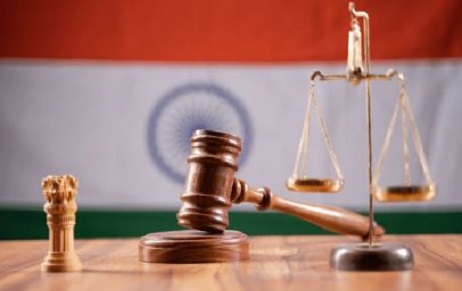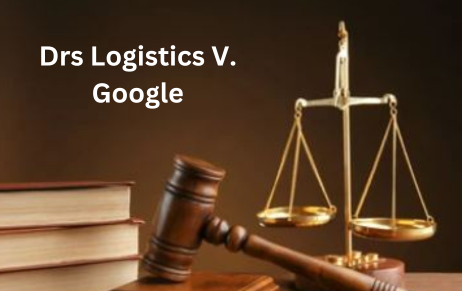ABSTRACT The project employs doctrinal research methods, i.e. secondary research which involves writing on basis…
A Closer Look At Tea Board, India V. ITC Limited Dispute
Introduction
Shahi Litchi of Bihar, Mysore Silk, Coorg Orange, Kashmiri Pashmina, Mizo Chilli among many others have one thing in common i.e. their quality, production and reputation is firmly attached to a particular geographical location. Property Rights are granted to products of such nature due to the fact that they are produced in a specific region because of either unique natural factors or the nature of skills required. Such a protection is mostly granted for Agro-based Products, Foodstuffs, Beverages & Handicrafts. In India, such a protection is granted under the Geographical Indications of Goods (Registration and Protection) Act, 1999.
Geographical Indications have been defined under Article 22 of the TRIPS Agreement as, ‘indications which identify a good as originating in the territory of a Member, or a region or locality in that territory, where a given quality, reputation or other characteristic of the good is essentially attributable to its geographical origin’.[1]
Timeline of the Dispute
The Tea Board obtained the status of the 1st GI Tagged Product in India in the year 2004-05 for ‘Darjeeling Tea’.
In the year 2010, an action was brought by the Tea Board claiming injunction against ITC Ltd. beforethe Calcutta High Court for infringement of their GI and Certification Mark along with Passing Off and Dilution, since ITC Limited named a part of its luxury ITC SonarHotel in Kolkata as the ‘Darjeeling Lounge’.[2] However, the same was dismissed on the ground that no prima facie case was made out and the injunction was rejected.
The order of the single-judge was subsequently upheld by the Division Bench of the HC.[3] Later in the same year, the Tea Board moved the Supreme Court[4], and the SC refused to interfere with the August 2011 decision of the HC and redirected the case to the Calcutta HC in 2016.[5] Eventually, an order was passed by Hon’ble Justice Sahidullah Munshi on 4th February 2019, which will be discussed further.
Claims advanced by the Tea Board
According to the tea board, ITC Ltd. had been wrongfully and fraudulently using the GI in the designation of its business premises & presentation and sale of its goods to mislead the users of such services.Moreover, there is a substantial possibility of confusion and linkage between the lounge and the businesses traditionally dealing with authentic Darjeeling tea, which is eventually misleading the users.
Takeaways from the Judgment
It was observed by the court that the suit was barred by limitation since the Hotel Lounge was functioning since January 2003 and the suit was filed by the Tea Board in the year 2010, which is beyond the limitation period prescribed under Section 26(4) of the GI Act, 1999. In addition to this, the bar under Section 26(1)(a) shall also be applicable since the lounge began its functioning in January 2003 and the GI Act came into force in September, 2003. Despite the same, in compliance with Rule 2, Order XIV of the CPC, the Court went ahead and addressed the issues on the merits of the case.
The most important assertion made by the Calcutta HC is that GI Rights shall only be applicable to goods and not services. In light of the facts of the case, the Court held that the claim of infringement of provisions of the GI Act does not stand since the plaintiff had obtained registration of the term Darjeeling only in relation to tea, and it is not a trademark, but a mere indication of origin of the goods. Since, GI rights only extend to goods the defendant’s lounge does not qualify as goods.
In this regard, Justice Sahidullah Munshi highlighted that,
‘In my view the whole object of the GI Act is to add to the economic prosperity to producers of goods and promote goods bearing Indian Geographical Origin for export’.[6]
Another important observation made by the Court was that,
Save and except the authority to certify that the concerned tea is connected with Darjeeling region, the plaintiff cannot claim any further proprietary right over the services rendered by the defendant under the name DARJEELING LOUNGE. Tea Board, therefore, under the provisions of the law, cannot exercise their authority with a limited interest of certification trademark to verify the services rendered by the defendant in their lounge named ‘DARJEELING LOUNGE’.[7]
While considering the allegations regarding ‘unfair competition’ as claimed by the Tea Board, the Hon’ble Court remarked that,
‘The allegation of unfair competition has been defined in Section 22 of Geographical Indication Act. According to the Section act of ‘unfair competition’ means any ‘act of competition contrary to the honest practice in industrial or commercial area’. Admittedly, there is no competition between the plaintiff and defendant in any industrial or commercial matters and therefore, the question of competition far less to say unfair competition within the meaning of Geographical Indication Act cannot and/or does not arise at all’.[8]
The Court concluded that the suit was frivolous in nature and went ahead and dismissed the suit and awarded costs in the tune of Rupees One Lakh.
Analysis
This particular dispute brings the overlap between trademarks and Geographical Indications to the limelight. The Calcutta High Court suitably addressed the issues involving multiple angles including effect of Certification trademarks, determining their distinction from regular trade marks, dilution, infringement as well as passing off. The judgment also addresses and clarifies the limit of ownership of rights granted to registered proprietors and specifically for authorities like the Tea Board. The Court has dwelled into the fundamental principle behind the GI Act and the genesis of the same to ascertain that it is only applicable for protection of goods and not services. The Hon’ble Court has laid down the stone for further redressal of issues arising out of overlapping between the Trademark law and GI.
Author: Ashna Chhabra, B.A. LL.B, ILS Law College, Pune, Intern atKhurana & Khurana, Advocates and IP Attorneys. In case of any queries please contact/write back to us at swapnils@khuranaandkhurana.com.
References:
[1]Agreement on Trade-Related Aspects of Intellectual Property Rights (TRIPS), Annex 1C, art. 22, available at https://www.wto.org/english/docs_e/legal_e/27-trips.pdf.
[2]Tea Board, India v ITC Limited, GA No. 3137, CS No. 250 of 2010, decided on 20th April, 2011.
[3]Tea Board v. ITC Limited, 2011 (48) PTC 169 (Cal).
[4]Tea Board v. ITC Limited,Special Leave Petition (Civil) No. S3.2282 OF 2011.
[5]Tea Board, India v. ITC Limited, C.S. No. 250 of 2010, Decided on 04.02.2019, MANU/WB/0277/2019.
[6]Supra Note 5, ¶56.
[7]Supra Note 5, ¶37.
[8]Supra Note 5, ¶46.



